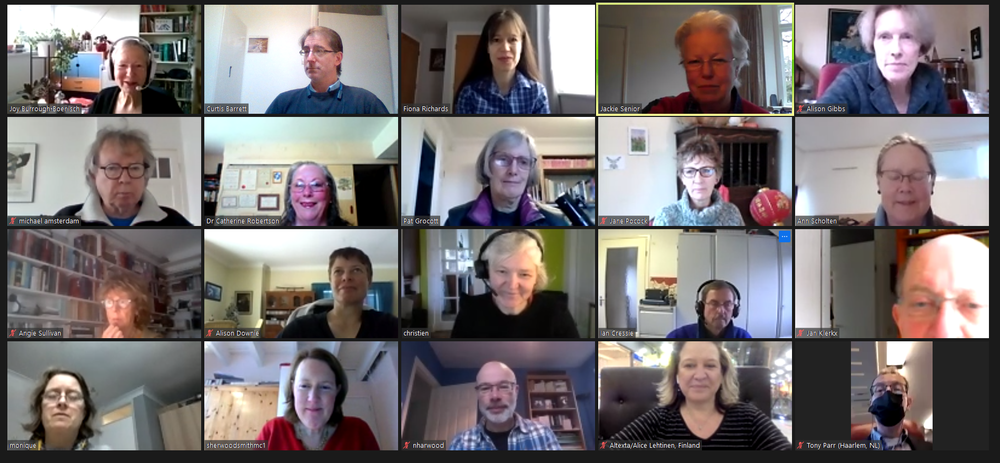
UniSIG’s last meeting of 2021 (10 December) was a presentation by Fiona Richards, a 3rd-year PhD student at Sheffield University (UK). Whatever the many downsides of the pandemic, one of the benefits is the increasing geographical spread of SENSE members able to attend our presentations on Zoom. On this occasion, for example, members from the Netherlands were joined by members from countries as far afield as South Africa and Finland.
Fiona’s field of study is Teaching English to Speakers of Other Languages. Her research, supervised by Nigel Harwood (speaker at a previous UniSIG meeting), involves investigating proofreading practices at a UK university from the perspectives of L2 (English as a second language) students, proofreaders and lecturers. The aim is to determine the extent to which proofreaders can help students improve their English writing, while simultaneously adhering to proofreading guidelines intended to uphold academic integrity. As Fiona explained, her interest in proofreading practices at a tertiary level stems from her background in teaching pre-sessional courses in which she has seen the challenges faced by L2 students producing written work for assessment.
During her presentation Fiona discussed the preliminary findings from the interviews she held with a student writer (high IELTS score), the student’s proofreader, a senior lecturer and a retired senior lecturer, followed by a brief discussion of the implications of her data and their bearing on university proofreading guidelines.
Her focus was on how they viewed the ethical appropriateness of the following types of proofreading interventions made to the student’s thesis:
- additions (1-5 words);
- deletions;
- substitutions (one word for another);
- reordering (word order);
- structural editing (eg, moving paragraphs);
- rewriting (advising changes to meaning and content);
- mechanical alterations (eg, adding italics, punctuation, applying conventions).
The post-presentation discussions covered issues familiar to many SENSE members, including:
- The continuing confusion between proofreading and copy editing;
- Differences between writing acceptable for assessment and writing acceptable for publication;
- ‘Mixed messages’ from lecturers who sometimes seem hostile to students genuinely wanting to improve their English by having their work revised by a language-editor/coach. In this respect, the guidelines for students are sometimes unclear;
- Affordability of editing: although universities may provide writing advice services, students are not always aware of them, and not being able to afford a professional editor can put students at a disadvantage;
- Whether proofreaders should explain their proposed changes (by inserting a comment, for example) or just make the change;
- Dangers of overzealous proofreading (‘doctoring the evidence’ or ‘silencing the author’s voice’).
Fiona hopes to complete her PhD in the coming year and in future to investigate a wider range of student work, including work by students with lower levels of English as a foreign language. We wish her all the best.